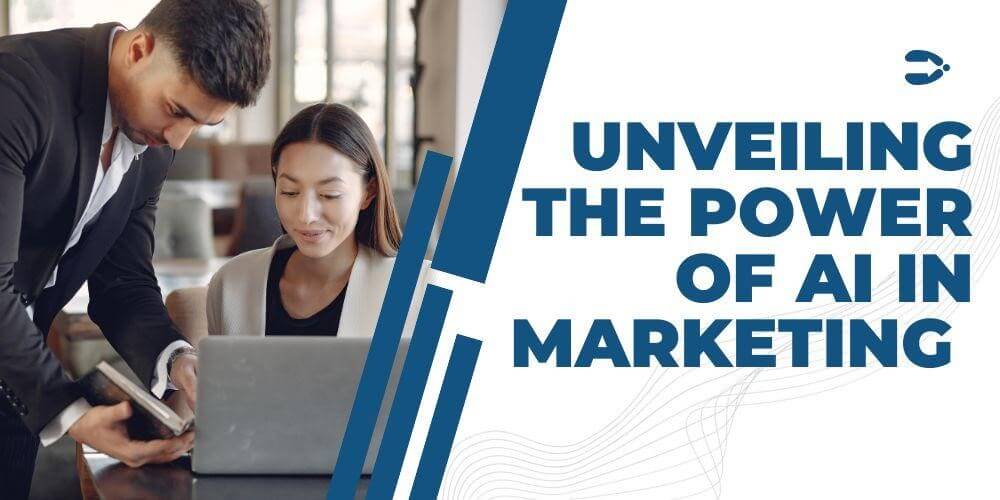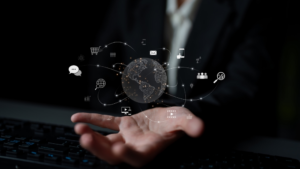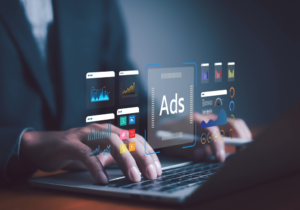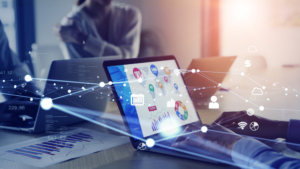Marketing is being transformed by AI, which has become a game changer. With its advanced capabilities to analyze data, automated processes and provide personalized experiences to customers, AI has revolutionized the way businesses approach marketing. Some of the ways in which AI is changing digital marketing are listed below:
Table of Contents
Toggle- Personalization: To deliver personalized recommendations and content, AI algorithms may be able to analyze customer data and behavior. This will help the creation of businesses with more targeted and relevant marketing campaigns that resonate with their audience.
- Predictive Analytics: To identify patterns and predict customer behavior, AI can analyze large volumes of data. It also helps businesses to be aware of customer needs and their preferences, which they can use to make better marketing choices.
- Chatbots: You can receive immediate customers’ help and assistance through AI powered chatbots 24 hours a day. It allows for easy answering of questions, providing advice on products and even processing orders, freeing up staff to perform tasks that are more complex.
- Content creation: content such as product descriptions, social media posts, and even whole articles can be generated by AI algorithms. This enables businesses to produce more content within a shorter period, while ensuring quality and consistency.
- Marketing automation: repetitive marketing tasks such as email campaigns and social media scheduling or lead validation may be automated by AI powered tools. This ensures that businesses are saving time and resources, while improving their efficiency and effectiveness.
AI – The Game Changer in Marketing Strategies
Artificial Intelligence (AI) has been making waves across various industries and marketing is no exception. With its ability to analyze vast amounts of data and predict consumer behavior, AI is revolutionizing the way businesses approach their marketing strategies. This delves into the potential impact of AI on marketing strategies and how it can enhance customer targeting personalization and engagement.
1 Impact of AI on marketing strategies
A key role in the definition of marketing strategies is played by artificial intelligence. From customer support to predictive intelligence, it could have a significant impact on how we approach different aspects of marketing. AI has a deep and broad influence on marketing strategies. It enables marketing professionals to simplify repetitive tasks, freeing up time for more strategic efforts. In addition, AI’s predictive capabilities allow businesses to adapt ensures that marketing strategies stay agile and effective in an ever-evolving landscape.
2 Improving customer approach with AI
AI brings the customer experience to the next level. By examining customer information, AI can identify trends and categorize customers based on their behavior and preferences. This enables companies to better tailor their marketing efforts to reach the right audience, with the right message, at the right time.
3 Personalization through artificial intelligence
In today’s digital world, people want experiences that are tailored to them. Artificial intelligence (AI) allows content to be tailored to each user based on their past experiences and preferences. Not only does this improve the user experience, but it also increases conversion rates and customer retention.
4 Boosting Engagement through AI
AI has the potential to significantly increase customer engagement. For example, chatbots can answer customer questions in real-time, enhancing customer service and boosting engagement. AI-driven recommendation engines can recommend products or services according to a user’s browsing history, encouraging more interactions and engagement.
AI. The new Ally for Marketers
AI is a hot topic in marketing right now, and for good reason. AI is revolutionizing the way marketers work by automating tasks, analyzing data, and optimizing campaigns. In this article, we’ll look at some of the most up-to-date AI technologies and marketing tools that can help you streamline your operations and get the most out of your campaigns.
Task Automation with Artificial Intelligence
One of the most significant advantages of AI is its ability to automate repetitive tasks. Tools like Hootsuite and Buffer use AI to schedule social media posts at optimal times, allowing marketers to focus on more strategic tasks. Likewise, Chatfuel and ManyChat offer AI-powered chatbots that can handle customer queries 24/7, improving customer service and reducing workload.
Data analysis
The ability of artificial intelligence to analyze massive amounts of data is critical for marketers. Tools like Google Analytics and Adobe Analytics use artificial intelligence to gain insights into customer behavior and help marketers better understand their audience. Additionally, predictive analytics tools like IBM Watson can predict future trends, keeping marketers one step ahead.
Optimizing Marketing campaigns with AI
AI can also help optimize marketing campaigns. AI’s ability to analyze vast amounts of data and predict outcomes makes it an invaluable tool for campaign optimization. It can test different campaign elements to identify what works best and continuously refine strategies based on real-time feedback.
Marketing Automation: AI-powered tools can automate various aspects of marketing such as email campaigns, social media scheduling, and lead scoring enabling marketers to save time and resources while improving efficiency and effectiveness.
A/B Testing and Optimization: AI can support A/B testing by analyzing performance data and identifying the most effective variations of marketing campaigns leading to continuous optimization and improvement.
Customer Insights: AI can provide valuable insights into customer sentiment engagement and preferences, helping marketers better understand their target audience and make data-driven decisions to optimize campaigns
Tools for AI-Powered Campaign Optimization
Several AI tools are available that can help optimize marketing campaigns:
Optimizely: This platform uses AI to conduct A/B testing on different versions of a webpage or ad determining which one resonates most with your audience.
AdEspresso: This tool uses AI to optimize ad campaigns by testing various combinations of ad elements such as headlines images and call-to-actions and identifying the most effective ones.
Albert: Known as an autonomous digital marketer Albert uses AI to analyze, optimize and execute campaigns across all channels learning from its actions to improve future performance.
Implementing AI for Campaign Optimization
To leverage AI for campaign optimization marketers should first define clear objectives for their campaigns. Next, they can use AI tools to test different campaign elements and strategies, analyze the results, and make necessary adjustments. The key is to let AI do the heavy lifting of data analysis and prediction while marketers focus on strategic decision-making based on these insights.
AI Marketing – Success Stories Unveiled
Artificial Intelligence (AI) has been making waves in the marketing world and many brands have already harnessed its power to achieve remarkable results. This article will highlight a few success stories of brands that have embraced AI marketing and reaped significant benefits
1. Starbucks: Personalization at Its Best
Starbucks is a prime example of a brand that has successfully leveraged AI to enhance customer experience. The coffee giant uses an artificial intelligence tool called Deep Brew to personalize menu recommendations for customers based on their previous orders and preferences. This not only increased customer satisfaction but also significantly increased sales. Implementing AI marketing increased ROI by 30%. Additionally, it resulted in a 15x increase in customer retention compared to previous traditional marketing methods.
2. Netflix: Predicting Viewer Preferences
Netflix uses Artificial intelligence to analyze viewer behavior and predict what they want to see next. This predictive analysis helps Netflix recommend shows and movies based on each viewer’s tastes, resulting in higher viewer engagement and retention.
3. Sephora: The Online Shopping Revolution
Beauty retailer Sephora is using artificial intelligence to revolutionize online shopping. Their Virtual Artist app uses artificial intelligence to allow customers to try on various beauty products, helping them make informed purchasing decisions. This innovative use of artificial intelligence has led to an increase in Sephora’s online sales.
Final words
To sum up, the marriage between marketing and AI is ushering in a new era of efficiency and effectiveness. As we continue to explore the many benefits and uses of AI in the optimization of marketing strategies, it’s become clear that embracing this technological juggernaut is not just a decision but a strategic necessity. From building stronger customer relationships, to targeting specific audiences, to automating mundane tasks, to making informed decisions based on data, AI has become the foundation of digital marketing success..










[…] Related Read: Unveiling the Power of AI in Marketing […]